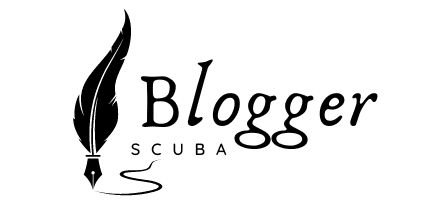What’s the Impact of Progressive Muscle Relaxation Techniques on Post-Competition Recovery?

In the world of high-performance sports, athletes invest significant time and effort into their physical training routines. But the impact of psychological factors like stress and anxiety on an athlete’s performance, and the role of relaxation techniques in managing these factors, is often underappreciated. One such technique is Progressive Muscle Relaxation (PMR), which has shown promising results in enhancing post-competition recovery rates. In this article, we delve into the manifold benefits of PMR and discuss its potential implications for athletes’ recovery and overall performance.
The Reality of Stress and Anxiety in High-Level Sports
Participation in high-level sports inherently involves managing stress and anxiety. The anticipation of an upcoming match, the pressure to perform, and the fear of failure are all sources of mental distress for athletes. This continuous state of elevated stress can take a toll on an athlete’s mental wellbeing, impairing their performance and hindering their progress.
A lire aussi : What Are the Best Practices for Managing Training and Competition Loads in Adolescent Athletes?
A recent study published on PubMed revealed that athletes who experience chronic stress have a slower recovery rate post-competition. This slower recovery impedes the body’s ability to repair muscle tissue, potentially leading to long-term damage. However, it’s not all doom and gloom. Various relaxation techniques are available that can help athletes manage their stress and speed up recovery.
Embracing Progressive Muscle Relaxation (PMR)
Progressive Muscle Relaxation (PMR) is a method that involves tensing and then relaxing each muscle group in the body, one at a time. PMR was developed by American physician Edmund Jacobson in the early 20th century. Jacobson argued that since muscle tension accompanies anxiety, one can reduce anxiety by learning how to relax the muscular tension.
Sujet a lire : How to Integrate Breathing Techniques into Strength Training for Enhanced Performance?
By incorporating PMR into their post-competition routine, athletes may be able to expedite their recovery and improve their overall performance. A group of researchers published a CrossRef study that examined the impact of PMR techniques on athletes’ recovery rates. They found that athletes who practiced PMR reported less muscular tension, lower levels of stress and anxiety, and better sleep quality.
PMR and Its Impact on Muscle Recovery
To understand the impact of PMR on muscle recovery, it’s important to understand how recovery works. Following intense physical activity, the body needs time to repair muscle tissue and replenish energy stores. This process can be hindered by stress, which can exacerbate inflammation and delay the healing process. By helping athletes relax and reduce their stress levels, PMR can promote a more conducive environment for muscle recovery.
An article indexed on Google Scholar suggests that PMR can significantly reduce the levels of cortisol, a hormone that the body secretes under stress. Elevated cortisol levels can interfere with tissue repair and protein synthesis – crucial aspects of muscle recovery. Hence, through its stress-reducing effects, PMR may play a significant role in promoting muscle recovery among athletes.
Incorporating PMR Into Training Regimes
Despite its potential benefits, PMR remains underutilized in sports training regimes. If you’re an athlete, coach, or trainer, you might consider incorporating PMR into your routine. Post-competition, start by sitting or lying down in a quiet, comfortable place. Begin at your feet, tensing the muscles as much as you can for about five seconds. Then, release the tension and feel the muscles relax. Repeat this process with each muscle group in your body, working your way up to your head.
Making PMR a part of regular training regimes can provide athletes with an accessible and straightforward way to manage stress and anxiety. Over time, consistent use of PMR can help to create a more relaxed state of mind, improve sleep quality, and enhance the body’s recovery process.
As we’ve seen, PMR offers a host of potential benefits for athletes, not least of which is its positive impact on post-competition recovery. While further research is needed to fully understand the potential of PMR, the existing body of evidence suggests it could be a valuable tool in the arsenal of high-performance athletes. Incorporating PMR into training regimes could be a game-changer, helping athletes to manage the mental aspects of their sports, enhance their recovery, and ultimately, improve their performance.
The Underlying Science Behind PMR and Muscle Recovery
To fully comprehend the potential benefits of Progressive Muscle Relaxation (PMR) on muscle recovery, it’s essential to understand the underlying science associated with this practice. Two crucial physiological aspects are at play during post-competition recovery – muscle tissue repair and energy store replenishment. Any interference in these processes can negatively affect an athlete’s recovery rate.
When an athlete engages in high-intensity sports, the body experiences an inflammatory response that aids in healing any micro-damage caused to the muscles. In a controlled environment, this inflammation is beneficial to recovery. However, continuous stress can prolong this inflammation, causing damage to healthy tissues and delaying recovery. PMR practices can help in managing this stress, thus fostering a healthy environment for muscle repair.
The body’s response to stress is the secretion of the hormone cortisol. Several studies, including one indexed on Google Scholar, suggest that PMR can significantly reduce cortisol levels. An excess of cortisol can inhibit protein synthesis and tissue repair, both crucial for muscle recovery. Therefore, by reducing cortisol levels, PMR aids in promoting a more efficient recovery process.
On a related note, a Pubmed CrossRef reviewed study highlighted the potential impact of PMR on heart rate. High heart rates, often associated with stress and anxiety, can delay muscle recovery. By encouraging relaxation, PMR can also help in controlling heart rate, further promoting recovery.
Conclusion: PMR – A Potential Game Changer in Sports Training
Understanding the mental dynamics within sports is just as vital as physical training. One cannot overlook the psychological aspects, especially when they have a direct impact on an athlete’s performance and recovery. This is where Progressive Muscle Relaxation (PMR) steps in, presenting a potential solution for managing stress and enhancing recovery rates.
The potential benefits of PMR are not restricted to just recovery; they extend to various aspects of an athlete’s life. The ability to manage stress better promotes a healthier mental state, leading to improved performance. In addition, better sleep quality, a common outcome of practicing PMR, can further boost recovery and overall health.
Despite the significant benefits it offers, PMR remains underutilized in sports training. However, this reality is slowly changing. As more research emerges, like the ones from PubMed CrossRef and Google Scholar, the sports world is gradually acknowledging the potential of PMR. Athletes, trainers, and coaches are starting to incorporate PMR into training regimes, making it a common practice post-competition.
In conclusion, while further research is necessary to explore the full potential of PMR, existing studies suggest a promising future. Making PMR a part of regular training regimes can offer athletes an accessible and simple way to manage stress and promote recovery. As we continue to explore the mental aspects of sports, techniques like PMR will play a pivotal role, transforming how we perceive and approach training in high-performance sports.
